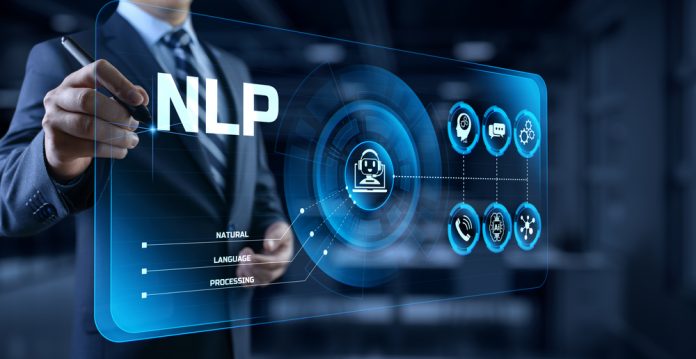
For some time, creative and cognitive decision-making has been considered outside the realm of Artificial Intelligence (AI). Indeed, experts have found it challenging to create algorithms that enable machines to understand the all-important context of human language and the ambiguities and intricacies buried in speech and written text. With this in mind, the common belief has often been that AI is better suited to making data-driven decisions rather than dealing with the complexities of language.
But in recent years, language-based AI has improved to such an extent that this view has shifted. Breakthroughs in supervised learning and innovative new deep learning architecture (known as the transformer) mean that AI can do so much more than ‘understand’ essential datasets.
This branch of AI, known as Natural Language Processing (NLP), essentially teaches machines to process human language in the same way we do – understanding and deriving meaning from unstructured data. From writing articles for The Guardian to translating languages, NLP is revolutionizing the world of AI. It could even be the next big thing in the world of business…
How does NLP work?
In addition to the lofty task of comprehending human language, the main issue with this kind of AI in the past was that it required humans to teach it using highly structured programming languages. When confronted with an unstructured language, the machines struggled to adapt. However, significant advancements in Machine Learning and ‘self-supervised learning’ can now help computers to imitate how humans learn and deal with vast datasets – in short, this gradually increases its accuracy the more it is used.
When learning to ‘understand’ human language. Therefore, data scientists must first break it down into fragments or symbols, much like when we first learn how to read. By separating the text into smaller semantic units and single clauses, machines can contextualize and analyze the individual meanings of words and the structure of sentences. NLP algorithms can then be built to allow the machine to continue learning and interpreting natural language using a rule-based modeling of human language.
What areas of NLP are businesses investing in?
Increasingly, NLP is being used by companies and organizations to streamline specific aspects of their operations, boosting the business’s overall productivity.
In the customer service and marketing arenas, Sentiment Analysis in social media is of growing value to businesses. Using NLP AI, businesses will be able to interpret the emotions and sentiments embedded within the text and categorize them into positive, negative, and neutral categories. By using this technology with social media platforms, review websites, or customer feedback messages, businesses can automatically assess how their customers and clients feel about their brands or products. As such, businesses can quickly react to negative comments to hone their offering, if necessary, without manually monitoring customer sentiment.
Elsewhere, NLP can revolutionize how Human Resources departments are run. At large companies, HR teams often struggle to deliver personalized support to every employee, leading some workforce members to feel undervalued and underappreciated. To improve this state of affairs, NLP can be used to streamline some of the more time-consuming aspects of HR roles, freeing up more time for HR managers to spend more of their working day interacting with co-workers face-to-face. For example, when recruiting, HR departments often have to manually trawl through hundreds, if not thousands, of applications and CVs. Using NLP, recruiters can screen candidates automatically as applications come in. Moreover, this can even help to overcome the subconscious bias, leading to a more productive HR team and a more diverse workforce, given that the algorithms are also built by a diverse pool of people.
Further on the HR front, the area in which NLP perhaps holds the most promise for businesses is the onboarding process and learning and development (L&D). These areas are often overlooked but make all the difference to staff retention, productivity, and engagement in the long run. In the onboarding arena, NLP-powered chatbots could be used to field queries sent in on behalf of incoming employees keen to learn about the business or their new role. This could give recruits vital information about their benefits packages, such as what to expect on their first day.
Meanwhile, existing employees would benefit from taking in up-to-date knowledge, important information, and new skills for their job. For instance, NLP tools can analyze a support agent’s responses to a customer and provide constructive criticism as necessary. Alternatively, NLP tools can be used to test employee knowledge about essential company knowledge or product information. These technologies will be invaluable for sales teams so that sales executives know what they are selling like the back of their hand, which should be a recipe for improving sales figures.
What’s next?
The field of NLP is ever-changing and improving. Businesses have a whole spate of new solutions to look forward to in the coming years, from sophisticated social media and marketing insights to highly advanced conversational agents with a better understanding of nuance and context.
Outside the business world, there have been considerable advancements in language translation in recent years. A few years ago, platforms like Google Translate could only manage basic sentences and clauses. Still, humans can effectively converse with people who do not speak their native language through their phones.
To briefly conclude, NLP is one of the most exciting branches in the field of artificial intelligence today and can potentially revolutionize the business world. As such, those companies that can successfully integrate AI into their everyday operations can expect to improve their business’s productivity and efficiency in the coming years.




